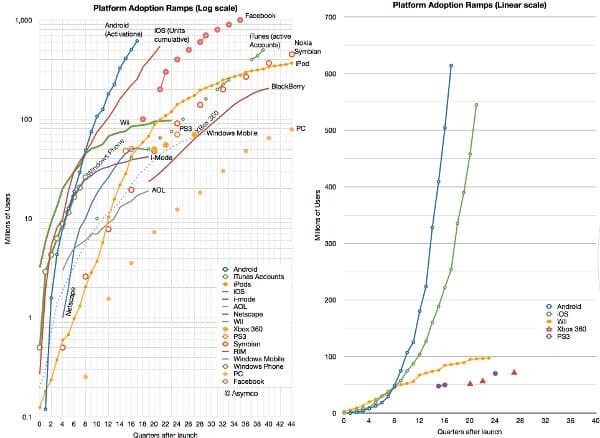There’s a fight going on for control over telephony services. Who are the contenders and where are we headed with it?
Telephony services have been with us for over 100 years. During that time, they were ruled by the telcos. In the past several years, this has started to change, with different types of players trying to displace the telcos.
Out of all the OTT players out there, the only one that probably matter is Facebook – simply because of its sheer size and its origins in social networking.
As for the rest, I think it boils down to only two types of players: the networks (=telcos) and the device/OS vendors.
Device vendors are now forced to offer a service – it isn’t something they can skip or let others do. Recently, it seems, each OS vendor, and at times handset vendor, is offering its own OTT communication service.
FaceTime and iMessage from Apple; Google Talk and Hangout from Google; ChatOn from Samsung; Skype from Microsoft; and now? There are rumors of RIM working on adding both voice and video calling to their Blackberry.
Even Xiaomi, a new and rising Chinese smartphone vendor is partnering for its own messaging service.
This places device vendors as OTT players that offer not only SMS and voice services to displace those of the telcos, but also video; which is a differentiator for now. They are the only ones that stand a chance due to what Horace Deidu phrased as the race to a billion:
One billion is significant in several ways: First, because it is the “high-water mark” set by Windows and signifies what a global platform needs to become to be essentially “universal”. Second, because it implies sustainability. A threshold perhaps from which network effects are sufficient to sustain (assuming some switching costs and an ability and willingness to adapt e.g. software, content or time investments from users.) Third, because it implies sufficient value to the ecosystem (assuming a monetization mechanism exists e.g. Windows software developers and IT managers.)
In this race to ubiquity, can we have telephony services running in silos, where each vendor brings his own communication service?
Will WebRTC change the rules of the game here, or will it be insignificant in this race?
And what about Telcos? Do they go down without a fight, or will they come with a solution of their own?


I think you make a great point that the ecosystem and business model transformations are as or more important than the technology developments. WebEx and friends in the enterprise world are another example.
I think you make a great point that the ecosystem and business model transformations are as or more important than the technology developments. WebEx and friends in the enterprise world are another example.
It is hard to predict, because WebRTC might be kind of late in the game (there is still a lot of userbase to gain).
Is it on the radar of developers building mobile apps, yet ? I see some excitement in the webdeveloper community.
As it is open, flexible (it does not define signaling, which could be a mistake or strenght) and open source, it has the potential to be easily added to lots of desktop applications and mobile apps.